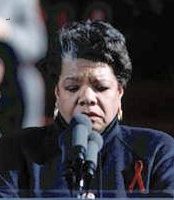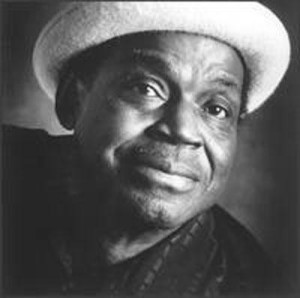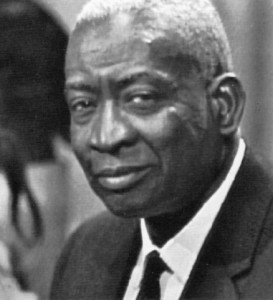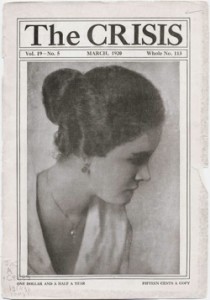Black History, Music, The Arts
 “Lift Every Voice and Sing” — sometimes referred to as “The Negro National Hymn” or ” The Black National Anthem”— is a song written as a poem by James Weldon Johnson (1871 – 1938) in 1899 and set to music by his brother John Rosamond Johnson (1873 – 1954) in 1900.
“Lift Every Voice and Sing” — sometimes referred to as “The Negro National Hymn” or ” The Black National Anthem”— is a song written as a poem by James Weldon Johnson (1871 – 1938) in 1899 and set to music by his brother John Rosamond Johnson (1873 – 1954) in 1900.
“Lift Every Voice and Sing” was publicly performed first as a poem as part of a celebration of Lincoln’s Birthday on February 12, 1900, by 500 school children at the segregated Stanton School. Its principal, James Weldon Johnson, wrote the words to introduce its honored guest Booker T. Washington. The poem was later set to music by Johnson’s brother John in 1905.
In 1939, Augusta Savage received a commission from the World’s Fair and created a 16-foot plaster sculpture called Lift Ev’ry Voice and Sing which was destroyed by bulldozers at the close of the fair. (more…)
Artists, Black History, The Arts

Geraldine McCullough
Renowned sculptor and painter Geraldine McCollough was born Geraldine Hamilton on December 1, 1917 in Kingston, Arkansas, and raised in Chicago from the time she was three years old. McCullough attended the Art Institute of Chicago for undergraduate and graduate studies, receiving her B.A. degree in 1948 and her M.A. degree in art education in 1955. As a student, she earned a John D. Standecker Scholarship, a Memorial Scholarship and a Figure Painting Citation.
After completing her graduate studies, McCullough taught art at Wendell Phillips High School in Chicago. She also began exhibiting her paintings at various national galleries, receiving first prize in 1961 at the Art Exhibit of Atlanta University. (more…)
Black History, The Arts

Maya Angelou a.k.a. Marguerite Johnson
Original name MARGUERITE JOHNSON (b. April 4, 1928, St. Louis, Mo., U.S. – d. May 28, 2014, Winston-Salem N.N.).
Maya Angelou was a black American poet whose several volumes of autobiography explore the themes of economic, racial, and sexual oppression.
Although born in St. Louis, Angelou spent much of her childhood in the care of her maternal grandmother in rural Stamps, Ark. Raped at the age of eight by her mother’s boyfriend, she went through an extended period of muteness. This early life is the focus of Angelou’s first autobiographical work, I Know Why the Caged Bird Sings (1970). Subsequent volumes of autobiography include Gather Together in My Name (1974), Singin’ and Swingin’ and Gettin’ Merry Like Christmas (1976), The Heart of a Woman (1981), and All God’s Children Need Traveling Shoes (1986). (more…)
Black History, Music, The Arts

Willie Dixon
Born in 1915, Willie Dixon did more to shape Chicago Blues than nearly anyone else besides perhaps Muddy Waters. He was the ultimate all-around blues man, working as a bass player, compser, producer, arranger and bandleader..to name a few. He initially began a career as a boxer, even sparring with Joe Louis, but it only lasted four fights after an altercation with his manager ended his pro career.
In 1939 he formed The Five Breezes which played until 1941 when he was arrested for refusing to serve in the armed forces. During his term and after he got out, he continued writing, playing and producing music all the way until his death in 1992. He was and still is a major influence in his field.
Dixon was an indispensable “behind-the-scenesâ€�� musician in the postwar Chicago blues scene. He was a notable songwriter, and his compositions for Muddy Waters, Howlin’ Wolf, Little Walter, Koko Taylor, and Otis Rush became part of their signature repertoires. (more…)
Black History, The Arts

Thomas Andrew Dorsey
“the father of black gospel music”
Thomas Andrew Dorsey born in Villa Rica, Georgia. He is known as “the father of black gospel music� and was at one time so closely associated with the field that songs written in the new style were sometimes known as “dorseys.� Earlier in his life he was a leading blues pianist known as Georgia Tom.
As formulated by Dorsey, gospel music combines Christian praise with the rhythms of jazz and the blues. His conception also deviates from what had been, to that time, standard hymnal practice by referring explicitly to the self, and the self’s relation to faith and God, rather than the individual subsumed into the group via belief.
Dorsey was the music director at Pilgrim Baptist Church in Chicago from 1932 until the late 1970s. His best known composition, “Take My Hand, Precious Lord�, was performed by Mahalia Jackson and was a favorite of the Rev. Martin Luther King Jr., and “Peace in the Valley�, which was a hit for Red Foley in 1951 and has been performed by dozens of other artists, including Queen of Gospel Albertina Walker, Elvis Presley and Johnny Cash.
(more…)
Black History, The Arts

Georgia Blanche Douglas Camp Johnson
Georgia Blanche Douglas was born September 10, 1880 in Marietta, Georgia. Her father was a wealthy Englishman of whom she knew very little. She attended Atlanta University, Oberlin Conservatory of Music, Cleveland College of Music, and Howard University. After returning from Ohio, she worked as an assistant principal in Atlanta. In the late 1890’s she studied music at Oberlin in Ohio. She was married in 1903 to Henry Lincoln Johnson, an Atlanta attorney and politician.In 1910 the couple moved to Washington, DC where they had two sons.
There, her home, which she called the Half-Way House, was the site of a weekly gathering known as the “S Street Salon” where many prominent writers of the Harlem Renaissance introduced new works. These writers included Mary P. Burrill, Countee Cullen, Jean Toomer, and Langston Hughes, as well as Angelina Weld Grimke. (more…)
 “Lift Every Voice and Sing” — sometimes referred to as “The Negro National Hymn” or ” The Black National Anthem”— is a song written as a poem by James Weldon Johnson (1871 – 1938) in 1899 and set to music by his brother John Rosamond Johnson (1873 – 1954) in 1900.
“Lift Every Voice and Sing” — sometimes referred to as “The Negro National Hymn” or ” The Black National Anthem”— is a song written as a poem by James Weldon Johnson (1871 – 1938) in 1899 and set to music by his brother John Rosamond Johnson (1873 – 1954) in 1900.



